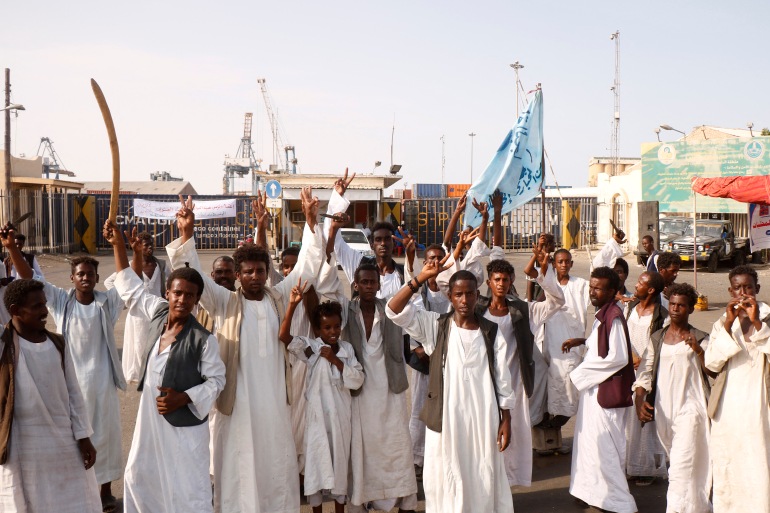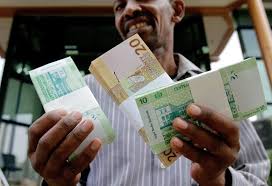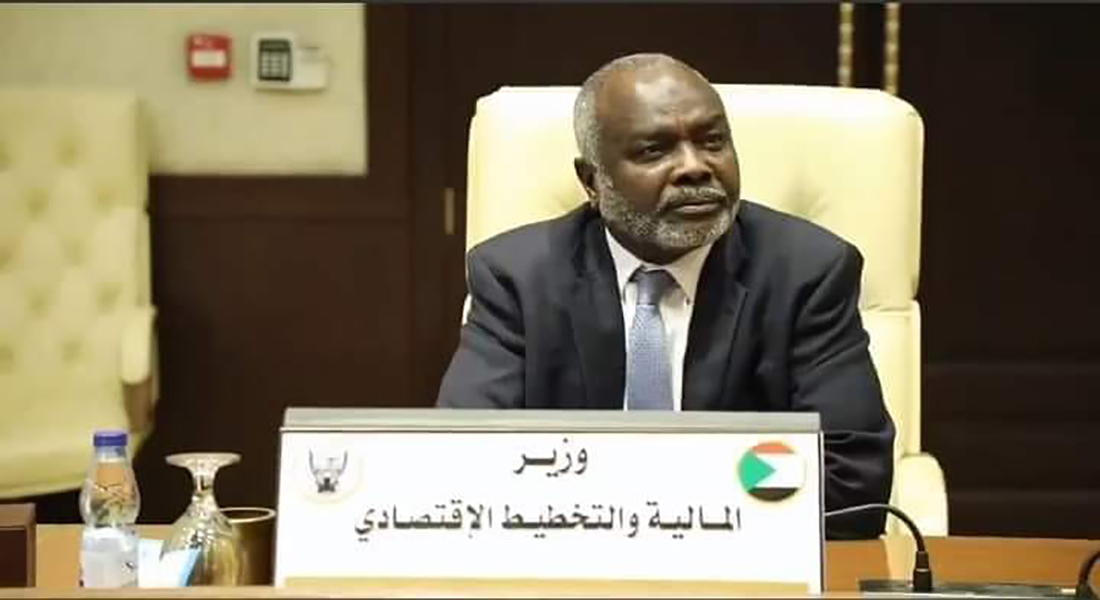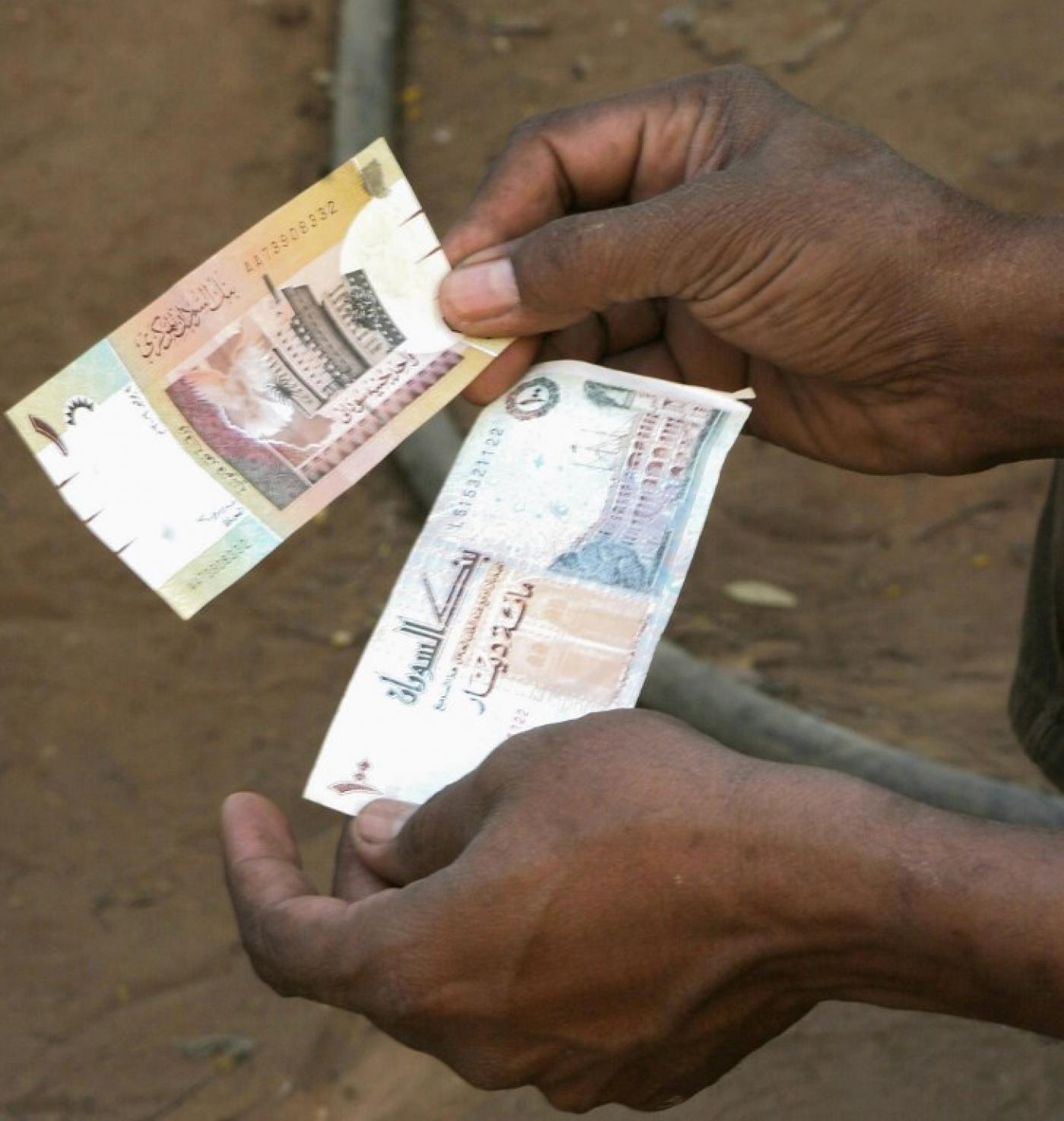Sudan’s coup: a death knell for the 2022 budget
22 December 2021
The 25 October military coup has left the country’s 2022 budget plans in confusion, with earlier projected economic growth of 3% now dashed – Sudanese may expect more price hikes, power cuts, and empty shelves in the new year.
Just weeks prior to handing over power to a civilian government, Lt.-Gen. Abdel-Fattah al-Burhan launched a coup in Sudan, subverting political and economic gains made during a revolution that toppled former dictator Omar al-Bashir in April 2019. On Sunday, civilians organised the largest protest yet against the coup, marking the third anniversary of the revolution.

The country will begin 2022 with an empty treasury, frozen government institutions, and an inability to obtain pledged international grants, says financial data analyst Ahmed Hassan. The military coup has effectively frozen government institutions and an economic blockade in Eastern Sudan –led by the High Council of Beja Tribes who support the coup- has contributed to diminished currency reserves and trade deficits.
According to an official from Sudan’s Central Bank, authorities withdrew over US$1.2 billion in hard currency reserves to cover imported goods during the coup, leaving the coffers empty. The official, who requested anonymity, believes the economy will enter a more desperate stage marked by price spikes for basic commodities –including wheat and electricity, unless “a miracle occurs”.
Already, signs of a faltering economy during this coup can be seen. While the transitional government had managed to balance currency exchange rates – black market dollar exchange rates are now higher (452 Sudanese Pounds to the dollar, compared to 447 in commercial banks) than commercial bank rates –potentially denying Sudanese banks access to capital.

Better times
Western diplomats and bankers say economic reforms made during the transitional government prior to the coup are now at risk. Unable to fund imports during the coup, Sudan may be forced to print banknotes, a policy that fuelled a long-running economic crisis. Prior to the coup, Sudan’s inflation rate, one of the highest in the world, had begun to fall and the exchange rate had stabilised following a sharp devaluation in February. For the first time in years, under the transitional government prior to the coup, Sudan had planted roughly one million acres of cotton in hopes the crop exports would help build currency reserves for the Central Bank. Now the fate of these export earnings remains opaque, the official said.
But not all reminisce fondly over the former transitional government’s fiscal policy. The previous government followed the International Monetary Fund’s harsh economic reforms without any buffer to support the populace, says economist Khaled el-Tijani, cutting fuel subsidies and driving inflation. Sudan’s inflation rate at the end of 2019 when Prime Minister Abdalla Hamdok took office was 53% –this spiked to 400% after the transitional government implemented the Fund’s economic prescription, El-Tijani told Ayin.
Frozen foreign finances
Whatever views economists may hold of the transitional government’s fiscal policies prior to the coup, there is one area all analysts can agree upon: the coup has severed recent ties with the international community, denying the country much-needed avenues to foreign aid.
Sudan was unable to access $650 million in international funding in November when assistance was paused after the coup – a freeze that puts in doubt basic import payments and the fate of economic reforms. The financing included $500 million in budget support from the World Bank and $150 million in special drawing rights from the International Monetary Fund, says economic analyst Wael Fahmy. This, along with $700 million from the U.S. and $2 billion in promised World Bank grants means at least US$ 3.3 bn remains on hold due to the coup.

In media interviews, current Finance Minister Jibril Ibrahim said the main impact of the freeze in international support would be on development projects covering agriculture, electricity, health, transport, and water supplies. A plan to provide basic income relief to counter the impact of fuel subsidy reform, the Thimarat program, will also remain on hold. The program was meant to receive $1.9 billion in foreign donor funding but was reduced to $820m for a six-month period. So far, the program only reached 8 million of its target audience of 35 million, El-Tijani said.
The 2022 budget
Next year’s budget will be depressingly similar to previous years –marked with high inflation, exchange rates, along with a high cost of living, El-Tijani says. “The majority of Sudanese have given up on buying their daily needs,” he added. These challenges will continue with the military dominating budget expenditures –as they have done so in previous years.
This year’s budget reflected a pattern Sudan has experienced for decades under the leadership of former dictator Omar al-Bashir, mass military spending and minimal expenditure on anything else. With the military currently in control, this trend is unlikely to change. Over half of Sudan’s 2021 budget, 55%, went to the military. The 2021budget allocated 12% to education but according to an education conference held in Khartoum in October –the budget did not fulfil its pledges and paid less than 10% towards education, Hassan said. According to Fahmy, military expenditure may well exceed this year to accommodate an expanding security sector after former rebels signed the October 2020 Juba Peace Agreement and are meant to be absorbed into the state security structures.


